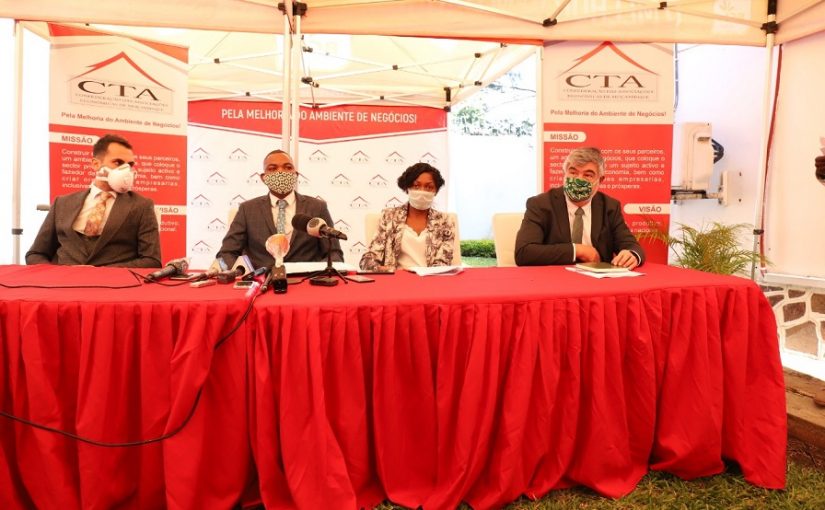LAM financial crisis endangers Mozambique Airports - AIM report
Watch: Mozambique industry losing 4 billion meticais each month amidst Covid-19 crisis

Photo:CTA
Information shared this Thursday (07) by the Confederation of Economic Associations of Mozambique (CTA) indicates that the Covid-19 pandemic is having a variety of impacts on the economy’s performance in general, and on the national business sector in particular.
In the case of the industrial sector, considered the engine of development for the national economy, the impact affects not only the sector itself, but also all the underlying sectors and sub-sectors that comprise the different segments of the supply chain, such as agriculture, transport and logistics and trade.
Presenting the figures, Director-General of Beluluane Industrial Park Onório Boane said the CTA data indicated that, since the onset of the crisis, the manufacturing sector had seen productive activity fall by more than 70%, and turnover of companies in this sector fall by a monthly average of 60%, corresponding to an estimated loss of revenue of about four billion meticais per month [around US$58.7 million at current exchange rates], with the non-alcoholic drinks, sugar, oil and soap industries recording monthly billing losses estimated between 40% and 65%.
According to Boane, this scenario is the result, on the one hand, of the restrictions imposed under the state of emergency, such as the labour shift regime and the reduction of workforces by two-thirds, and, on the other hand, of the dynamics of the market itself, particularly the contraction of aggregate demand resulting from the reduction of household income and the economic flow in general.
“The oil and soap industries, in particular, had already suffered from a 52% drop in monthly invoicing as a result of the ending of VAT exemption in December 2019. The Covid-19 pandemic has aggravated the situation, increasing losses by a further 12%, bringing the monthly loss of revenues in this industry to a total of around 229 million meticais per month,” Boane pointed out.
Onório Boane further explained that these industries were seeing the impact both of a fall in demand resulting from the end of the VAT exemption, which brought about a 17% price increase in these products and, on the other hand, of a fall in aggregate demand originated by the impact of the Covid-19 pandemic that led to a reduction in the aggregate income and a consequent reduction in household expenditure.
“In the face of this scenario, CTA reiterates the need to adopt urgent and concrete measures to support companies in the industrial sector, which is extremely important for the country, both from the point of view of the level of income and employment that it generates, and from the point of view of the domino effects that may result from a significant disruption in the activity level in this sector,” he added.
Among the main measures CTA is seeking are the deferral of tax payments, with a focus on VAT on the sale of sugar, oil and soap, and a reduction in electricity bills for companies that were forced to cease operation by the state of emergency.
“The cost of electricity is, for most industries, one of the main operating costs. On average, a national industry with a continuous production cycle has a monthly energy cost of about 5 million meticais, which represents about 12% of its cost structure, so a 50% reduction in electricity bills would support the finances of companies in this sector by around 2.5 million meticais, which, when applied for a period of six months, may result in a relief of around 15 million meticais per company, which is considerable given the challenges that companies face” Boane stated.
Meanwhile, CTA has once again insisted that the falling price of crude oil in the international market speedily find its way through to the retail price of liquid fuels in Mozambique.
By Evaristo Chilingue













Leave a Reply
Be the First to Comment!
You must be logged in to post a comment.
You must be logged in to post a comment.